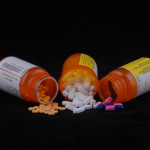By David Blyweiss, M.D., Advanced Natural Wellness
August 30, 2019
Have you ever been surprised by a friend who orders a double espresso after an evening meal?
Maybe you remarked, “Wow, isn’t that going to keep you awake?”
But your friend just shrugs his shoulders. “It doesn’t affect me,” he says. “I can go right to sleep.”
As it turns out, some people really aren’t affected strongly by caffeine. These folks are called “fast metabolizers” and — for them — coffee can actually work like a medicine in their bodies.
But for other folks – those slow metabolizers – coffee is like a poison.
There’s a lot of conflicting coffee information out there. I know it can be confusing, so let’s clear up a few of your questions…
First of all, some sources will rave about the benefits of drinking coffee. They tell you how coffee can cut your risk of diabetes, protect your heart and slash your chances of getting cancer. It can also help ward off dementia, Parkinson’s and Alzheimer’s.
If you’re a coffee drinker, this news makes you feel great…
Open your arteries, improve blood flow for a new health miracle...
Did you know your circulatory system has over 60,000 miles of arteries, veins and other blood vessels, if stretched end to end?
But as you age, your blood vessels undergo changes, which may cause them to stiffen, thicken and get clogged.
GOOD NEWS! Doctors have now identified a “Miracle Molecule” inside your arteries that helps OPEN your arteries and IMPROVE blood flow.
It’s what Dr. Valentin Fuster calls it, "One of the most important discoveries in the history of cardiovascular medicine."To you, that means...
- Healthy blood pressure
- Sharper mind and memory
- Skyrocketing energy and muscular strength
- Increased pleasure and passion in the bedroom
- Improved circulation to every cell and organ in your body
Go here to discover a new natural way to significantly boost the levels of this miracle molecule in YOUR body NOW!
Then, a few clicks later, you read a negative headline that claims coffee is linked to heart attacks, reduces insulin sensitivity and makes your bones weak.
I’m sure this leaves your head spinning.
So What’s the Truth? Is Coffee Medicine or Poison?
Well, it depends on the type of person you are.
I believe there is plenty of truth behind the health benefits of drinking coffee. After all, it’s packed full of antioxidant polyphenols and other wholesome compounds.
And for people who can drink a double espresso late at night – those fast metabolizers – coffee can actually slash your risk of a heart attack.
But if drinking a late night cup of Joe makes your eyes bulge, then you may be a slow metabolizer. For you, just a single cup of java a day can actually boost your risk of a heart attack.
Here’s how the numbers stack up among people who are younger than 59 years old:
| Heart Attack Risk | Heart Attack Risk | |
| Caffeine Intake | Slow Metabolizer | Fast Metabolizer |
| 1 cup | Increases risk 24% | Decreases risk 52% |
| 2-3 cups | Increases risk 67% | Decreases risk 43% |
| 4 cups or more | More than doubles risk | Decreases risk 17% |
As you can see, slow and fast metabolizers have opposite effects from drinking coffee. The beverage helps some, but hurts others.
Slow coffee metabolizers — those folks who are strongly affected — have a greater chance of developing glucose and insulin problems if they drink a lot of coffee.
And remember coffee isn’t the only beverage that contains caffeine. Energy drinks, tea and sodas do, too.
The World's Quickest Solution for Ending Prostate and Urinary Misery
This has recently been revealed to be one of the only real breakthroughs in prostate health.
The seeds of a strange fruit (sometimes called "Chinese Apples") hold powerful phytonutrients that are a revolution in prostate health.
In fact, UCLA and Veterans Administration research have now proved this to be true.
Not only that, but it may be the worlds quickest solution for ending prostate misery.
Simply stated, these phytonutrients represent a huge step beyond beta sitosterol, saw palmetto, and other phytosterols alone.
Simply click HERE if you want to have fast prostate relief...restful, uninterrupted sleep...no more constant "urges to go"...enhanced virility...and optimal prostate support for life.
So if you’re a slow metabolizer and gulping down large quantities of these caffeinated beverages each day, you may be exposing yourself to some serious health risks.
What to Do If You’re a Java-Junkie
As for me, I enjoy a well-brewed cup of organic coffee — blond and sweet….like coffee ice cream. And I don’t use refined sugar or artificial sweeteners, but do enjoy non-dairy vanilla creamer. So I understand your concerns on this topic.
To start, you’d probably like to know whether you’re a fast or slow metabolizer – whether your body treats coffee like medicine or poison. If your own drinking habits don’t clue you in, try a caffeine sensitivity test.
They run about $99 and you can find them online. All you have to do is send in a cheek swab and you’ll get a report back several weeks later.
If you’d like to get the taste and benefits of coffee without the negative health effects, try switching to decaf. It contains all of the phenols and antioxidants found in regular coffee, without the dangers for slow metabolizers. Also, decaf has a small amount of caffeine in it since USDA labeled “decaffeinated” coffees can still be 97% decaf.
In particular, both regular and decaf – whether hot or cold brewed – are high in something called chlorogenic acid (CHA). This is a powerful antioxidant that may be responsible for many of the healthy benefits associated with coffee.
This compound helps block the absorption of sugar and suppress the production of glucose after meals. This means it’s great at controlling blood sugar swings and insulin spikes.
CHA is also great for your heart. It increases the amount of nitric oxide in your blood vessels. This, in turn, relaxes your arteries and lowers blood pressure.
Additionally, it can help prevent cholesterol from becoming oxidized, which helps decrease the chance of plaque build-up and clogged arteries.
Switching to decaf is great, but going cold-turkey might not work well for everyone. It can leave you feeling headachy, fuzzy, lethargic and irritable.
To make the transition a little easier, try switching to half-caf for a few weeks. If you’re a heavy coffee drinker, start limiting the number of cups you drink each day, too. For example, if you drink four cups a day, cut back to two or three cups of half-caf.
Then, as you start entering your second week, start replacing those half-cafs with decaf.
To a java-junkie, this may sound like torture, but I promise — you’re doing your body good.
Regardless of whether you choose caffeinated or decaffeinated coffee, always make sure you select a blend made from organic coffee beans to avoid heavy pesticide residue.
And if you do decide to switch to decaf, be aware that even if it’s labeled organic, the caffeine is still removed using a solvent, (ethyl acetate found in some ripening fruits so it’s more “natural”) although since the roasting process burns off the solvent the amount which could end up in your coffee cup is really small.
The only processing method that doesn’t use solvents is called the “Swiss Water Process,” or SWP. You can find organic SWP decaf at your local health food store, specialty coffee shops and online.
SOURCES:
Cornelis MC, et al. Coffee, CYP1A2 genotype, and risk of myocardial infarction. JAMA. 2006 Mar 8;295(10):1135-41.
Palatini P, et al. Association of coffee consumption and CYP1A2 polymorphism with risk of impaired fasting glucose in hypertensive patients. Eur J Epidemiol. 2015 Mar;30(3):209-17.
Whitehead N, et al. Systematic review of randomised controlled trials of the effects of caffeine or caffeinated drinks on blood glucose concentrations and insulin sensitivity in people with diabetes mellitus. J Hum Nutr Diet. 2013 Apr;26(2):111-25
Meng S, et al. Roles of chlorogenic Acid on regulating glucose and lipids metabolism: a review. Evid Based Complement Alternat Med. 2013;2013:801457.
Thom E. The effect of chlorogenic acid enriched coffee on glucose absorption in healthy volunteers and its effect on body mass when used long-term in overweight and obese people. J Int Med Res. 2007 Nov-Dec;35(6):900-8.
Yan R, et al. Synergistic neuroprotection by coffee components eicosanoyl-5-hydroxytryptamide and caffeine in models of Parkinson’s disease and DLB. Proc Natl Acad Sci USA. 2018 Dec 18:115(51):E12053-E12062
Zhao Y, et al. Antihypertensive effects and mechanisms of chlorogenic acids. Hypertens Res. 2012 Apr;35(4):370-4.







